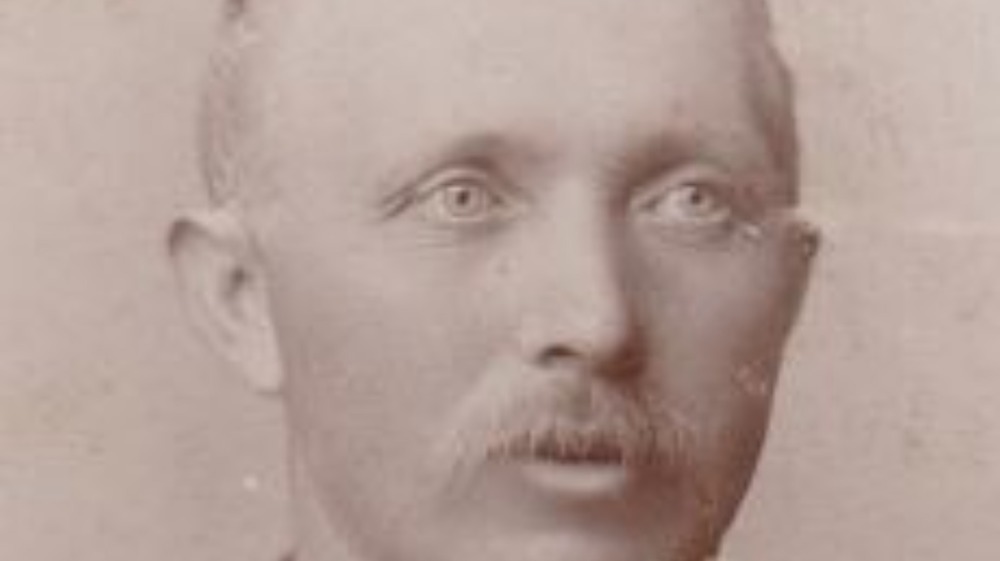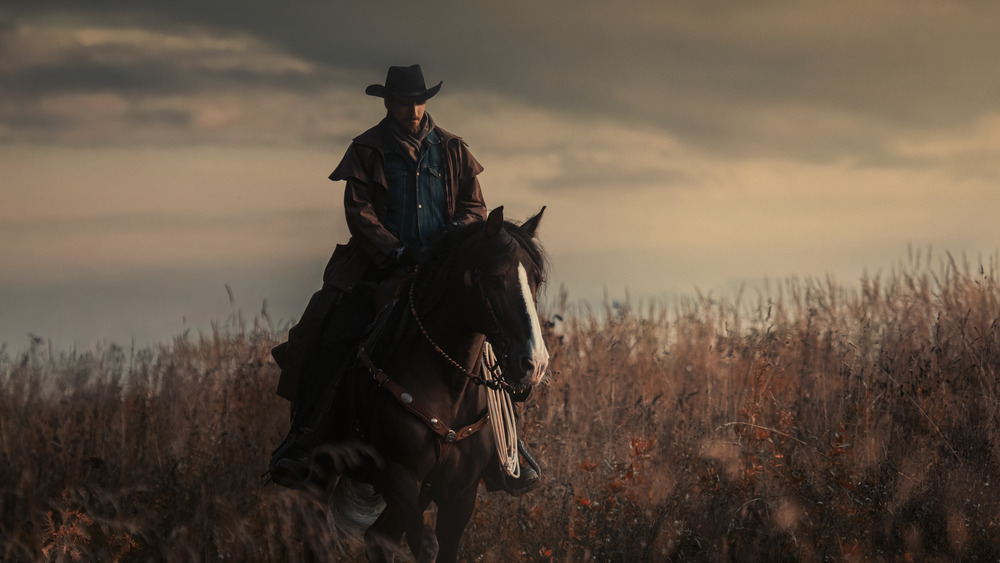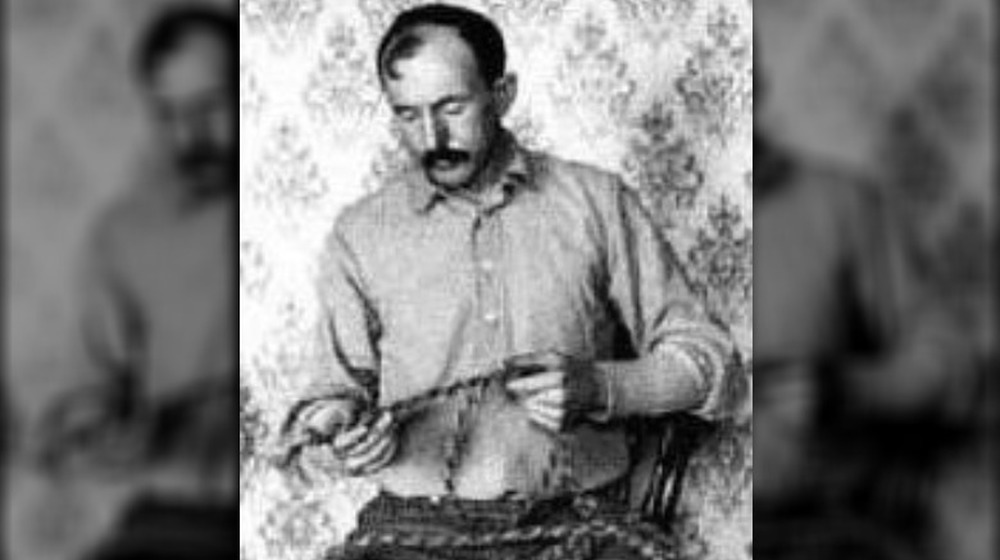Tom Horn: Old West Detective, Or Paid Assassin?
Oh Tom Horn, what will we do with you? Cowboy, Army scout, Apache translator, miner, "horse breaker" and hunter of cattle rustlers, Rough Rider packer in Cuba, sharpshooter, detective, assassin-turned-wrongfully accused murderer, and of course, Japanese leather apparel brand (per Tom Horn). Giddy up!
Only one of those claims to fame is false (hint: It's the last one). Yes, Tom Horn is definitely one of the more interesting, weird, and eclectic Renaissance men of the "Old West," or "Wild West," the period of time from which Annie Oakley, Buffalo Bill, Billy the Kid, and all other manner of marksmen, outlaws, and vigilantes sprang forth around the mid-to-late 1800s in the U.S., west of the Mississippi.
Tom Horn, though, stands out from the pack. Born in 1860, he was a complex person and self-made adventurer who, as History Net describes, left home at 14 years old with a gun, dog, $11, and an enormous chip on his shoulder. Horn's father had beaten a sense of sulky, low self-worth into him (literally), and as a result, Horn was at times savage and heartless, attracted to extreme situations, and prone to bragging. At one point later in life he said of his employer's restrictions to not stray from a homestead's road, "I wouldn't allow 15 of the worst men in the world to tell me that. I am at liberty to go where I please in the country. I wouldn't stand for anybody to tell me anything of that kind."
A horseback riding, violent polyglot and 'King of the Cowboys'
Horn's path from runaway child to convicted murderer centered around two things: his gun (symbol of power) and his horse (symbol of freedom). Horn, who immortalized himself in his posthumously-published autobiography (1904) that he wrote on death row in 1903, Life of Tom Horn: Government Scout and Interpreter, bounced between odd jobs his entire life, reportedly murdering 17 people before being arrested in 1902 for the murder of 14-year-old Willie Nickell near Iron Mountain, Wyoming.
Horn, a 6-foot tall, 200+ pound guy in an era of 5-foot-6-inch men, was "not the type of man one liked to argue with," as the Sheriff of Gunnison County once said. As a teenager Horn set out from Missouri and made it through Kansas all the way to Sante Fe. He worked on the railroad for 26 days for $21, as a mail driver for $50 a month and "use of a rifle," a cattle wrangler in Arizona for $75 a month, and was ultimately hired as an Apache translator by Al Sieber, Chief of Scouts for the Army, who went on to call Horn "King of the Cowboys," per Goodreads. Horn also spoke German and Spanish, no doubt thanks to growing up in a bilingual family and community.
As soon as Horn accepted a job with the Pinkerton National Detective Agency in Colorado in 1891, his fateful path of violence apprehending horse and cattle thieves, train robbers, and murderers began.
Executed after a drunken confession
Through the 1890s Horn grew to have a dual reputation: a "gentleman who was true to his word," and a brutal pursuer of justice. In his own words, though, per WyoHistory, he was merely a "detective." He patrolled the frontier and worked on the range checking cattle, liaising between competing ranchers, and chasing criminals, often stretching the legal boundaries of his role to do so. When apprehending the Fred Langhoff gang in November 1893, eyewitness Gus Rosentreter said that one man threatened Horn with a butcher knife. Horn replied by saying, "Drop that knife or I'll put a bullet through your heart."
Horn's ego, unfailing marksmanship, and, yes, love of alcohol — a fact that he left out of his autobiography — would come back to haunt him when he was accused of murdering a 14-year old boy, Willie Nickel. At the time, Horn went on 10-day patrols within nothing but "bacon and dried bread," and stopped at ranches only three times along the way. His pseudo-outlaw status had grown, and his employer was starting to doubt his methods.
Without warning, Horn left to pursue a job offer in Montana. Nickel's body was discovered, and Horn was hunted down. Drunk, he "confessed" to the crime, saying, "best shot that I ever made and the dirtiest trick I ever done," and was hanged, based on this alone, in Cheyenne, Wyoming, in 1903. To this day, it's still unclear whether or not he did it.


